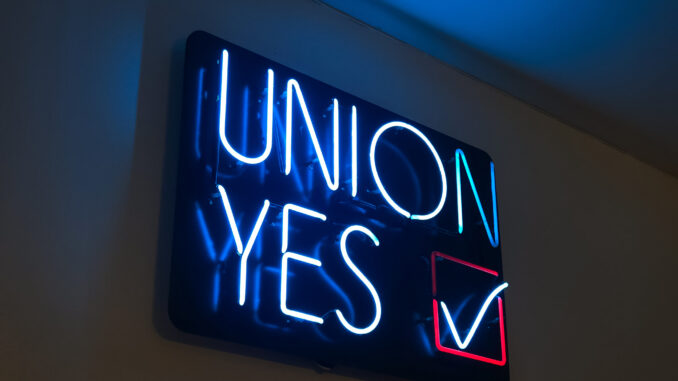
By Hank Russell
The National Labor Relations Board (NLRB) has filed a lawsuit against the state of New York over a new law that lets the state’s labor relations board examine private-sector union matters involving elections and unfair business practices.
On September 12, the NLRB filed a lawsuit contesting the validity of a bill introduced by state Senator Jessica Ramos (D,WF-Jackson Heights) and signed into law by Governor Kathy Hochul on September 5.
The lawsuit was authorized by Acting General Counsel William B. Cowen, who has delegated authority for such litigation in the absence of a Board quorum. The new state law amends the State Labor Relations Act and grants the New York Public Employment Relations Board authority to oversee private sector union elections and to investigate and resolve unfair labor practices.
The purpose of this new law, Ramos wrote in the legislation, is “to make sure employees still receive protections guaranteed by the National Labor Relations Act if the National Labor Relations Board is unable to successfully assert jurisdiction.”
Citing the “recent attacks on labor,” Ramos wrote, “The current federal administration recently left the Board one member shy of a quorum. Absent a quorum, the Board lacks the power to take meaningful actions, such as issuing decisions in representation and unfair labor practice cases. Under current law the National Labor Relations Act preempts any attempt to take up these cases at the state level.”
Cowen pointed out that the National Labor Relations Board holds exclusive jurisdiction over most private sector labor disputes under the National Labor Relations Act (NLRA), and legislation such as that signed by Hochul is preempted by the NLRA, as explained in Cowen’s August 15 press release.
Through the delegation of certain duties to the acting general counsel, the agency has been able to continue its normal operations and fulfill its statutory duties of investigating unfair labor practices and processing representation petitions to the greatest extent permitted by law, largely unaffected by the temporary absence of a board quorum or a designated chairman.
Although this law has good intentions, Cowen said, it is misguided and will ultimately undermine the national framework for protecting employees’ rights that has been in place for ninety years.
“While we respect the important role states play in protecting businesses and workers in other areas, the NLRB has exclusive jurisdiction over unfair labor practices in the private sector; legislation like this cannot be reconciled with the Supremacy Clause of the U.S. Constitution,” Cowen said.
“Employers, unions, and employees deserve clarity on their legal rights and regulatory obligations,” he continued. “Beyond the fact that this legislation is unmistakably preempted, attempts such as this only create confusion, waste employees’ time, delay the ultimate resolution of labor disputes, and drive up costs for businesses, which in turn will divert resources that may otherwise be used to invest in their employees or create new jobs.”
“For this reason, today I have taken the serious step of initiating legal action against the State of New York to protect the Agency’s jurisdiction and ensure that our nation’s employers, unions and workers have clarity and consistency when it comes to the rights guaranteed to them under the National Labor Relations Act.”
Long Island Life & Politics reached out to Hochul’s office. They responded in a statement, “We cannot comment on pending litigation.”

